
Archive
2,505 posts



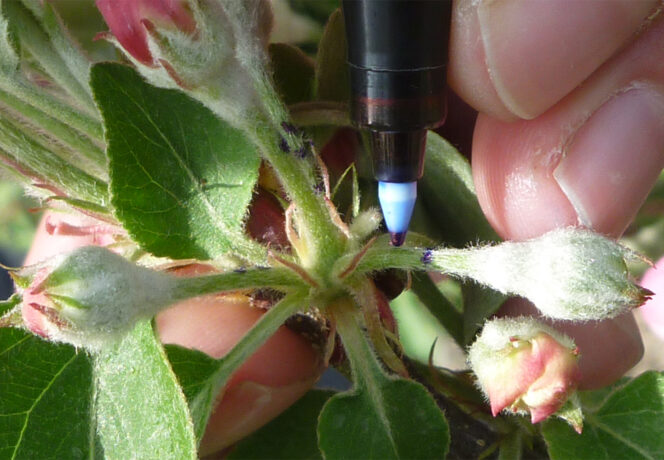
Forecasting crop load in apple trees
Crop-load management is a vital cultural measure in apple-growing. Only when the number of fruits per tree corresponds to target crop-load levels do yield and quality match over the years. Crop load is influenced by various factors, and is deliberately reduced through thinning measures. The necessary intensity of thinning, however, is difficult to gauge, since…
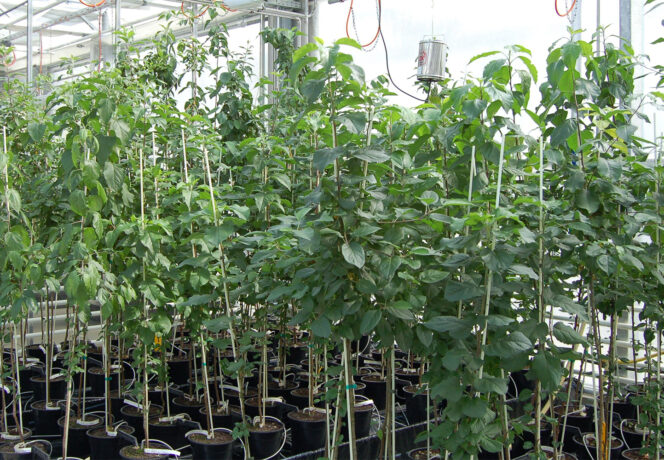
Breeding fire blight resistant apple varieties
215 apple selections and cultivars were screened in a glasshouse shoot infection test for their susceptibility to fire blight in the frame of projects that were financed by the Swiss Federal Office for Agriculture. Selected varieties were also examined for their flower susceptibility towards fire blight in an open air protected orchard. Moreover, a fire…
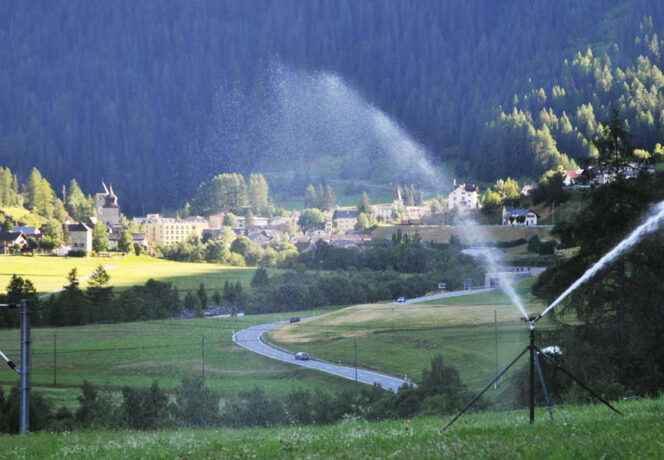
Sprinkler systems as a cause of intensification of grassland use in the Swiss Engadin
During a long-term monitoring from 1987 to 2010, changes in vegetation and land-use intensity at irrigated versus non-irrigated study sites were investigated in the Swiss Engadin. Specifically, vegetation surveys were compared between the years 1987/88 and 2009/10 to identify whether and how proportions of extensively used (no-input) hay meadows to low-intensity meadows changed (including a…
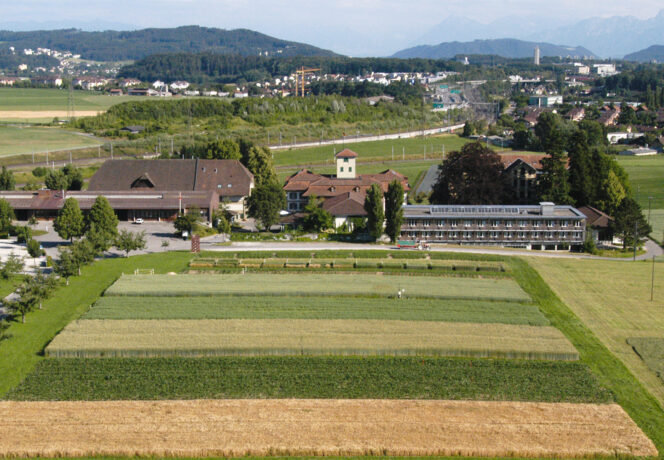
Diversity of arbuscular mycorrhizal fungi in field crops using no-till and conventional tillage practices
Since 1994, a comparison of no-till and conventional tillage systems has been underway on the Oberacker long-term field trial site at the Inforama Rütti education and extension centre in Zollikofen, Berne canton. The present paper investigates the influence of the two cropping systems and various field crops, including catch crop mixtures, on the diversity of…

Butterfly and moth diversity in lower-mountain region grassland habitats
Around one third of the 226 butterfly and moth species in Switzerland are threatened owing to the loss of suitable habitats caused by agricultural intensification. Organic farming aims to contribute to the conservation of species diversity in farmland. This case study investigates the impact of organic farming on butterfly species richness and abundance. The study…


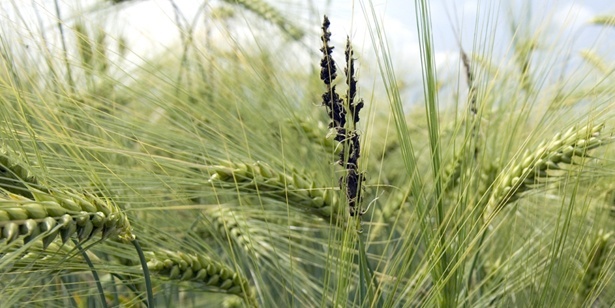

The Swiss plant breeding sector – a spatial, temporal and thematic analysis
The spectrum of crop species grown within Switzerland as well as their agricultural performance is changing over time. Traditionally, cereal, horticultural and forage production play a major role in Swiss agriculture, and it is crucial to maintain the productivity of these crops under future socio-economic and environmental conditions. However, to focus on only these economically…
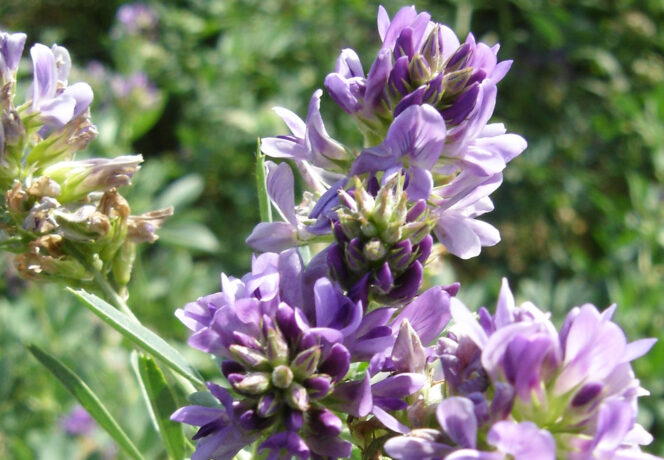
Alfalfa variety trials (2011-2013)
From 2011 through 2013, 36 varieties of alfalfa (Medicago sativa L.) were examined in comparative variety trials at five experimental sites. All varieties were grown in pure stands and in mixture with gramineous plants. The parameters assessed were dry matter yield, juvenile development, regrowth speed, general impression, stem thickness, competitive ability, persistence, digestibility of organic…

Full-Cost calculations for contract work
Based on eight farms and 30 observations of farm enterprises, the revenues for seven categories of contract employment in the outdoor-work sector such as Plant Production, Transport/Logistics and Winter Road Clearance are compared to the full costs in order to determine their cost-efficiency. Except for bale-pressing, labour utilisation (i.e. the resultant hourly wage) significantly exceeding…

The potential of agriculture in the Gotthard Region
The production and marketing of regional speciality foods offers considerable potential for the development of rural areas. This potential was demonstrated by a study which the School of Agricultural, Forest and Food Sciences carried out in the Gotthard Region and was supported by a review of the pertinent literature. Results of the study showed that…

Who buys organic foods in Switzerland?
Over the past years, the Swiss market for organic foods has grown considerably. However, little is known about the factors that motivate consumers to purchase organic food products. Within the framework of this analysis, data from Swiss households on the consumption of organic foods were analysed descriptively and econometrically. The evaluation of these household data…

Determination of fatty acid composition in feed – analytical methods
This paper illustrates the importance of the analytical method for the determination of fatty acid composition in feed. In Switzerland, not only the lipid content but also the fatty acids profile are necessary to formulate a ration that will produce an optimum quality of fat in the pig carcass. Results of this study showed that…

The presence of experienced piglets does not promote the growth of newl weaned piglets
In a feeding trial the hypothesis was tested that the presence of experienced piglets facilitates the adaptation of newly weaned piglets to solid food. The 72 four-week-old piglets in the experimental group were mixed at weaning with 12 piglets which had been weaned one week earlier, whereas their 72 siblings in the control group were…


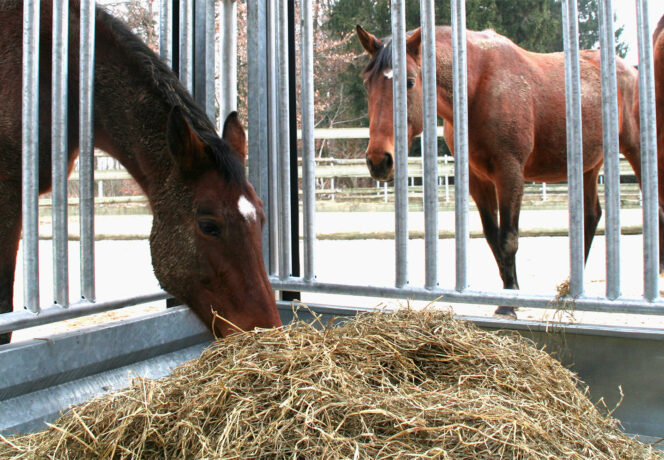
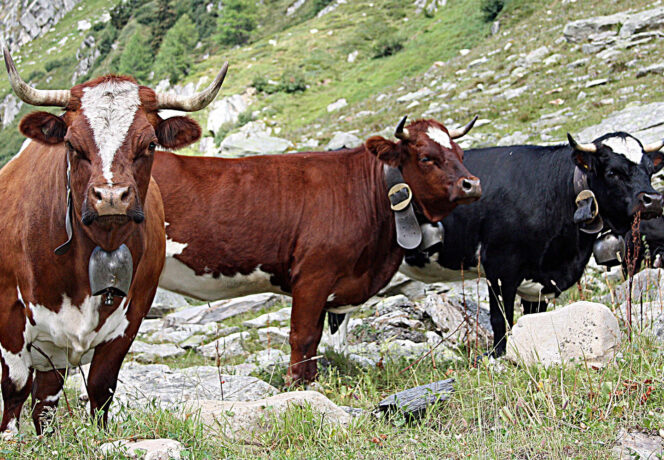

Impact of streptomycin applications on antibiotic resistance in apple orchards
The Federal Office for Agriculture (FOAG) authorized the use of streptomycin to fight fire blight under controlled conditions in 2008 with the provison that the development of antibiotic resistance in the treated plots is monitored. Agroscope in Wädenswil thus performed the first study to quantitatively analyze the influence of streptomycin use in agriculture on the…
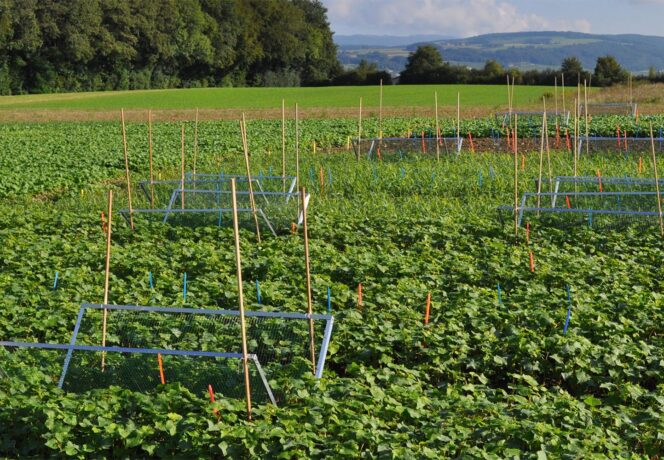
Weed suppression by cover crops: analyzing different factors
Cover crops represent an increasingly widespread agricultural technique in Switzerland as they provide different ecosystem services. One important role of cover crops is weed control, which can be explained by resource competition (for water, nutrients and light) and allelopathic effects (biochemical interactions between plants). To better understand the phenomenon of weed suppression by cover crops,…

The future of wheat breeding
Unlike the situation in the European Union, where wheat breeding is almost exclusively in the hands of the private sector, public breeding of disease-resistant wheat with high baking quality has a long-standing tradition in Switzerland. Important increases in yield potential are still possible here. After World War I, wheat yield in other European countries increased…

Variety and cultivation trials with winterhardy poppy
Poppy (Papaver somniferum L.) is a traditional field crop of Switzerland. During the Second World War, it was still grown on around 1300 ha with a view to the country becoming self-sufficient in cooking oil. Today, poppy is only grown in Switzerland on a few hectares. With the entry into force of the 2014–2017 agricultural…
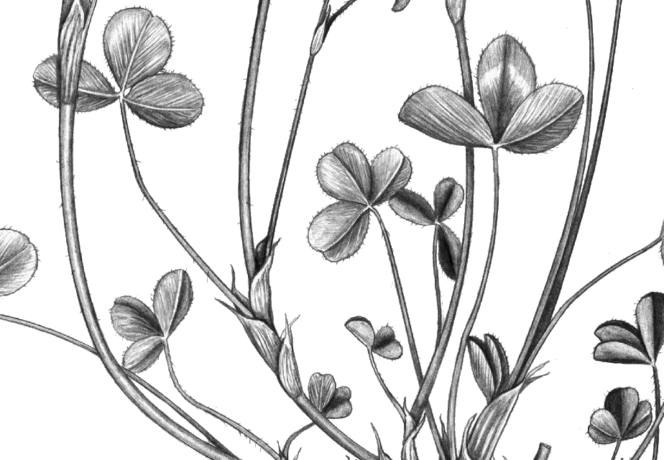
Substantial progress in variety testing with red clover
Agroscope noted significant breeding progress in the variety tests with 30 new cultivars and 24 already recommended varieties of red clover (Trifolium pratense L.) conducted at six locations from 2011 to 2013. Yield, vigour, juvenile development, resistance to leaf diseases, winter-hardiness and persistence were all evaluated. For the persistent varieties («Mattenklee» type), results allowing for…


